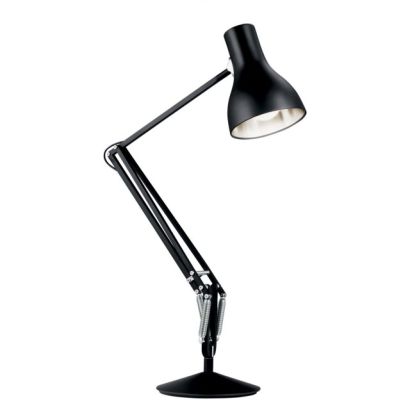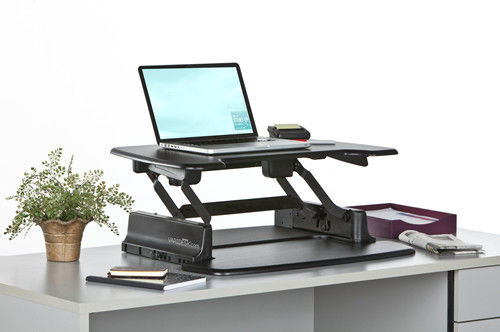专家指导:如何保护孩子的眼睛(图)
 如何保护孩子的眼睛
如何保护孩子的眼睛
 如何保护孩子的眼睛
如何保护孩子的眼睛
 如何保护孩子的眼睛
如何保护孩子的眼睛
 如何保护孩子的眼睛
如何保护孩子的眼睛
 如何保护孩子的眼睛
如何保护孩子的眼睛
【电脑视觉综合症】
Staring at a computer monitor for hours on end has become part of the modern workday. Middle and high school students, as well as upper elementary students, find that most of their homework should also be completed on the computer. Add the amount of time spent on the computer or a tablet during the school day and our children are spending hours and hours on the computer every week。
连续盯着电脑屏幕几个小时已经是现代办公的再正常不过的状态了。中学生和高中生乃至小学生,也要在电脑上完成大部分学习任务。孩子们每周有大量的时间在使用电脑(包括平板电脑)。
Many parents question the effect that this computer time has on their child’s eyesight. In fact, the medical community has labeled the effect a computer screen has on the eyes as “Computer Vision Syndrome”. Computer Vision Syndrome, or CVS, is not one specific eye problem. Instead, the term encompasses a whole range of eyestrain and pain experienced by computer users。
很多父母疑惑电子屏幕对于孩子视力的影响到底有多大。实际上,医疗部门已经把电子屏对于眼睛的影响列为“电脑视觉综合症”。电脑视觉综合征,不是一个特殊的视力问题,而是一个普通的视力疲劳的产物。
*CVS symptoms include blurred vision, double vision, eye irritation, headaches, and back or neck pain. These effects are the same experienced by a person who has watched too much TV, read a book for too long, or played one too many video games. In fact, the vast majority of CVS symptoms can be found in Asian students who study for many hours a night. **BBC News reports a “massive rise in Asian eye damage”. The article goes on to state that, “the "extraordinary rise" in the problem is being caused by students working very hard in school and missing out on outdoor light…Up to 90% of school leavers in major Asian cities are suffering from myopia -short-sightedness – while in the UK, the average level of myopia is between 20% and 30%。”
*电脑视觉综合症包括视力模糊、复视、眼部刺激感、头疼、和肩颈背痛。这些电子屏产生的影响和人们看了太久电视和书,或者玩了太久的游戏机的道理一样。实际上,大部分的“电脑视觉综合症”发生在亚洲学习到深夜的学生身上。**BBC新闻报道了题为“亚洲人视力严重下降”(“massive rise in Asian eye damage”)的文章。文章说道,眼部问题“惊人的飙升”是因为学生在学校学习过度,并且缺少室外活动和阳光的照射导致。高达90%的亚洲大城市学生有近视眼,而这一数据在英国的平均值是20%-30%。
Don’t fear! There are easy, effective ways to control or even counteract the negative effects that technology and reading have on the eyes. Making a few changes to your home/work environment, and how your child interacts with technology, can help prevent and even improve Computer Vision Syndrome. Here are some easy tips from the medical experts at WebMD:
不要担心!这里有很简单有效的办法来控制科技和阅读为眼睛带来的负面影响。对家庭和工作环境做一些小的改变,并且调整孩子和科技产品互动的方式,可以帮助预防电脑视觉综合症。这里有一些来自WebMD(美国最大的医疗健康服务网站)的医学专家的小方法:
【1. 减弱反光】
Cut the glare
Change the lighting around you to reduce glare on the computer screen. In general, lighting levels between 200 and 700 lux (approximately 20 to 70 foot candles) measured at the workstation are recommended. More than 500 lux will usually be needed only to read poor quality documents。
调整你周围的光线,以减少电脑屏幕的反光。一般来说,光强在200-700勒克斯(照明单位)是最适合工作环境的光强。只在阅读材料字体很小或者模糊的时候,才需要大于500勒克斯的光强。
【2. 重新摆放你的书桌】
Rearrange your desk
Researchers find that the optimal position for your computer monitor is slightly below eye level. At that position, you shouldn't have to stretch your neck or strain your eyes to see what's on the screen。
调查发现,电脑显示器摆放在书桌最优的角度是显示器略低于视平线。这样,你不用伸着脖子或者眼睛非常费力地看清电脑屏幕。
【3. 遵循20/20原则】
Follow the 20/20 rule
Look away from the screen every 20 minutes or so and either gaze out the window or scan the room for about 20 seconds to rest your eyes. Blink often to keep the eyes moist。
看电子屏满20分钟,就看看别的地方来放松眼睛,比如窗外的远方或者扫视房间20秒钟。经常眨眼,来保持眼睛湿润。
【4. 保持合适的阅读距离】
Keep some distance
The human eye has to work much harder at close distances. ***Not surprisingly, people reading on their smart phones tend to hold the device much closer to their eyes than they would a book or magazine. A 2011 study found that the majority of study participants held their phones 14 inches from their eyes to read text messages, 12 1 / 2inches for a Web page, and printed text at a distance of 15 3 / 4 inches. The American Optometrists Association has found that a viewing distance of 20 to 28 inches is generally recommended for best eye health。
近距离读东西的时候,眼睛更容易疲劳。***人们看手机的时候,眼睛离材料会比读书或者杂志时候更近。2011年的研究发现,大部分人使用手机时,眼睛据手机屏幕14英尺(约36厘米),使用电脑时,眼睛屏幕12.5英尺(约32厘米),看纸质材料是,眼睛据材料15.75英尺(约40厘米)。美国验光师协会(The American Optometrists Association)发现,距离阅读材料20-28英尺(约51-71厘米)是最有益于眼睛健康的阅读距离。
【5. 走,到户外去!】
Go outside!
The final step to keeping ourselves and our children healthy is an easy one- go outside and play! ****Time Magazine found that, “Chinese young adults in Australia, where exposure to bright sunlight is more likely, show lower rates of myopia than Chinese young adults living in cities in East and Southeast Asia. Similarly, white children living in Sydney show lower rates of nearsightedness than those living in the U.K。”
最后一个让我们和孩子的眼睛健康的方法是——到户外去,玩耍!****时代周刊讲到,“在澳大利亚阳光最充足地区生活的中国年轻人,近视率比生活在东南亚的中国年轻人更低。同样地,住在悉尼的孩子比住在英国的孩子近视率更低。”
Technology is the future. Gone are the days of file cabinets and books, pencils and erasers. As adults, it is our job to care for the only pair of eyes we have. As parents, it is our job to be sure our children know how to use technology safely, as technology- and their eyes- will be a part of their lives forever。
科技是未来。从前只有小房间、纸质书本、铅笔和橡皮的时代已经过去了。作为成年人,我们有责任保护好我们唯一的一双眼睛。作为父母,我们有责任让孩子知道如何有效安全地运用科技,因为孩子的眼睛更是他们的未来。
文章关键词: 眼睛
- 马耳他的渔船居然长着“眼睛”2014-07-31 14:43
- 毕业季中的世界杯:眼睛红情更难舍2014-06-20 07:48
- 盘点8个趣心理事实:眼睛使我们诚实(双语)2014-06-12 15:42
- 大学女生开网店一年卖1385万 累到眼睛睁不开2014-05-20 14:39
- 致夜猫子:睡前玩手机影响睡眠伤眼睛(双语)2014-05-05 15:24

